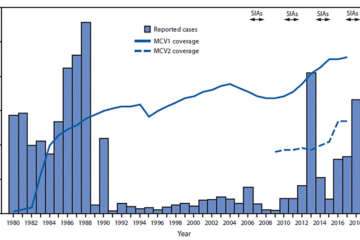Challenges to nursing education in Pakistan – The Express Tribune

Nursing education in Pakistan has undergone significant transformations over the years, evolving to meet the demands of an ever-changing healthcare sector. The curriculum, previously traditional and didactic, has shifted towards a more comprehensive and hands-on approach, aligning with international standards.
According to Pakistan Nursing Council, more than 70 institutions are offering nursing education, ranging from diplomas to PhD programmes. As per Pakistan Economic Survey 2020-21, there were a total of 116,659 nurses in the country. However, a major challenge facing nursing education in Pakistan is the scarcity of qualified faculty. Many institutions struggle to recruit and retain well-trained educators due to low salaries and limited career progression opportunities within the field. The consequences of this faculty shortage are multifaceted and have significant implications for the healthcare system. Some of the key consequences include: Inadequate Training and Education: The shortage of qualified faculty members leads to insufficient training opportunities for nursing students, impacting the quality of education and skill development. High Turnover Rates: The lack of potential educators and career progression opportunities contribute to high turnover rates among nursing staff, further exacerbating the shortage of skilled professionals in the field.
Quality of Patient Care: The shortage of nursing faculty affects the quality of patient care as institutions struggle to produce competent nursing graduates who can provide optimal care to patients. Overburdened Healthcare System: The existing shortage of nurses is compounded by the lack of faculty, leading to an overburdened healthcare system with inadequate nurse-patient ratios, compromising the quality of care provided. Addressing these consequences requires strategic interventions such as increasing educational opportunities, improving working conditions, offering competitive salaries, and enhancing career progression pathways for nursing professionals in Pakistan
The nursing education landscape in the country faces significant challenges, including resource disparities between toptier universities and institutions in rural areas. The provided references shed light on various aspects of these challenges: Many rural areas in Pakistan lack essential resources such as equipment, laboratories and libraries crucial for nursing education. Insufficient resources and inadequate guidance contribute to the shortage of nurse educators and practicing nurses in the country. Limited access to high-speed internet in rural regions can hinder nurses from pursuing higher education opportunities. Bridging the resource gap between urban and rural nursing schools is crucial to ensure equal access to high-quality nursing education across Pakistan.
By addressing these disparities and investing in the development of nursing education infrastructure, Pakistan can strengthen its healthcare system and produce competent nursing professionals to meet the country’s healthcare needs. Several initiatives have been taken by both government and NGOs to address the growing demand for skilled nurses. For example, the HEC’s National Nurse Education Project aims to improve the quality of nursing education through capacity building, research and collaboration between educational institutes; and the Ministry of National Health Services, Regulations & Coordination has established the Nurses and Midwives Council to regulate nursing education standards and ensure competency among graduating students.
To keep pace with global trends, Pakistan has adopted international best practices and developed curricula aligned with global standards. These revised curricula emphasise inter-professional team work, evidence-based practice, patient safety and leadership skills – all essential components of modern nursing care. Despite the challenges faced by nursing education in Pakistan, the future looks promising. With initiatives like the National Nurse Education Project and the Nurses and Midwives Council, Pakistan is poised to produce a new generation of skilled and compassionate nurses to contribute significantly to the country’s healthcare system.












